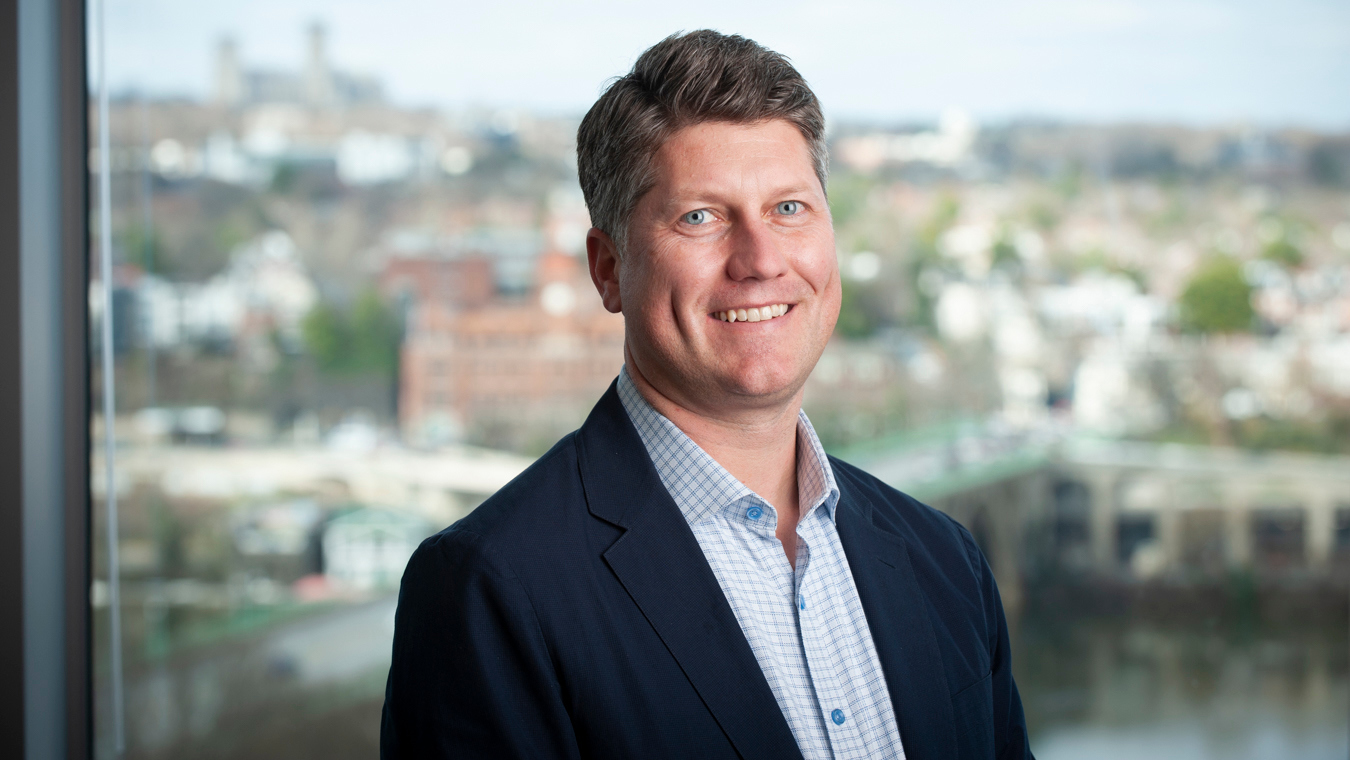
Mark Urbanczyk ’02 leads the government AI & Data Engineering practice at Deloitte Consulting and has seen the rise of artificial intelligence over the years.
“It’s a growing tidal wave,” he says.
For the last 20 years, he has witnessed the growing interest in data analytics and AI, helping both public and private clients with their journey to become more data-driven.
“Around the middle of the 2010s, a lot of progress and momentum started to emerge, and then the pandemic really sped up the digital transformation drive across government.”
In November 2022, OpenAI launched its free ChatGPT AI chatbot that anyone could use to generate content, followed by similar offerings from competitors, igniting the current AI boom. According to Deloitte’s 2024 State of Generative AI in the Enterprise quarterly survey, 75% of organizations said they expect the technology to affect their talent strategies within two years. Federal and state-level agencies also increased AI efforts, leading to the Biden Administration’s 2023 Executive Order on AI. The executive order is the latest in a race for the U.S. government to harness the power of AI and provide guardrails to mitigate risks of this fast-moving trend. Urbanczyk notes that the executive order kicked off the development of several new industry standards, which are likely to be followed by AI governance-focused legislation at the state and federal levels.
“It’s incredible to see the interest across industries – particularly from the business and executive leaders who were not ‘all-in’ during the earlier analytics wave,” says Urbanczyk. He and his team are helping organizations figure out how to integrate various AI technologies – and manage its risks – following the wave and trends over the past two decades as technology and approaches have evolved.
“It’s been a fun journey,” he says – one that he didn’t necessarily plan.
“I got into the data space by happenstance,” he says. And he found his passion.
Urbanczyk was a decision and information science major as an undergraduate at the Smith School. “I definitely enjoyed my experience at Smith and am a passionate UMD alum,” he says.
The Sept. 11, 2001 attacks became a defining moment for his career trajectory.
“I wanted to make an impact post-9-11, so I sought out roles supporting the federal government,” he says. “Some of my initial focus areas were in the Department of Defense and the Department of Justice, just as the federal government was trying to break down some of the data silos that existed.”
He has spent his career supporting a variety of government and commercial clients. He’s also trying to help Smith students navigate AI and data science.
“Terps and data are two passion areas for me, so it made a lot of sense to lean in there,” Urbanczyk says.
Initially, he got involved as the champion for all of Deloitte’s recruiting efforts at Smith. Then Deloitte became a founding member of the Smith Analytics Consortium and Urbanczyk was heavily involved with those efforts.
“I’ve been involved in and around different efforts since then, currently as an advisory board member for the Master’s in Business Analytics program,” he says.
Urbanczyk says it’s important for all Smith students to learn about AI, regardless of what field they plan to go into. “AI is going to change all aspects of business in the future.”
He says Deloitte is looking for the students they hire to have a baseline AI fluency and also some depth in one domain – whether it’s knowing how to apply AI in a given industry or having the technical skills to build AI solutions. “They also need agility and a willingness to continuously learn, constantly be curious—that’s really important for students who want to be successful in the business world.”
He says he’s really proud that the Smith School is so focused on AI and new initiatives like the recently launched Center for Artificial Intelligence in Business. “I’m excited about the investments that have been made and the vision that the school has for future investments.”
Urbanczyk says AI is a major disruptor, but it won’t replace humans.
“We like to say humans with machines are the future. Businesses that will succeed are going to put in the processes and have the talent to leverage AI to make their organizations more impactful.”
Media Contact
Greg Muraski
Media Relations Manager
301-405-5283
301-892-0973 Mobile
gmuraski@umd.edu
About the University of Maryland's Robert H. Smith School of Business
The Robert H. Smith School of Business is an internationally recognized leader in management education and research. One of 12 colleges and schools at the University of Maryland, College Park, the Smith School offers undergraduate, full-time and flex MBA, executive MBA, online MBA, business master’s, PhD and executive education programs, as well as outreach services to the corporate community. The school offers its degree, custom and certification programs in learning locations in North America and Asia.